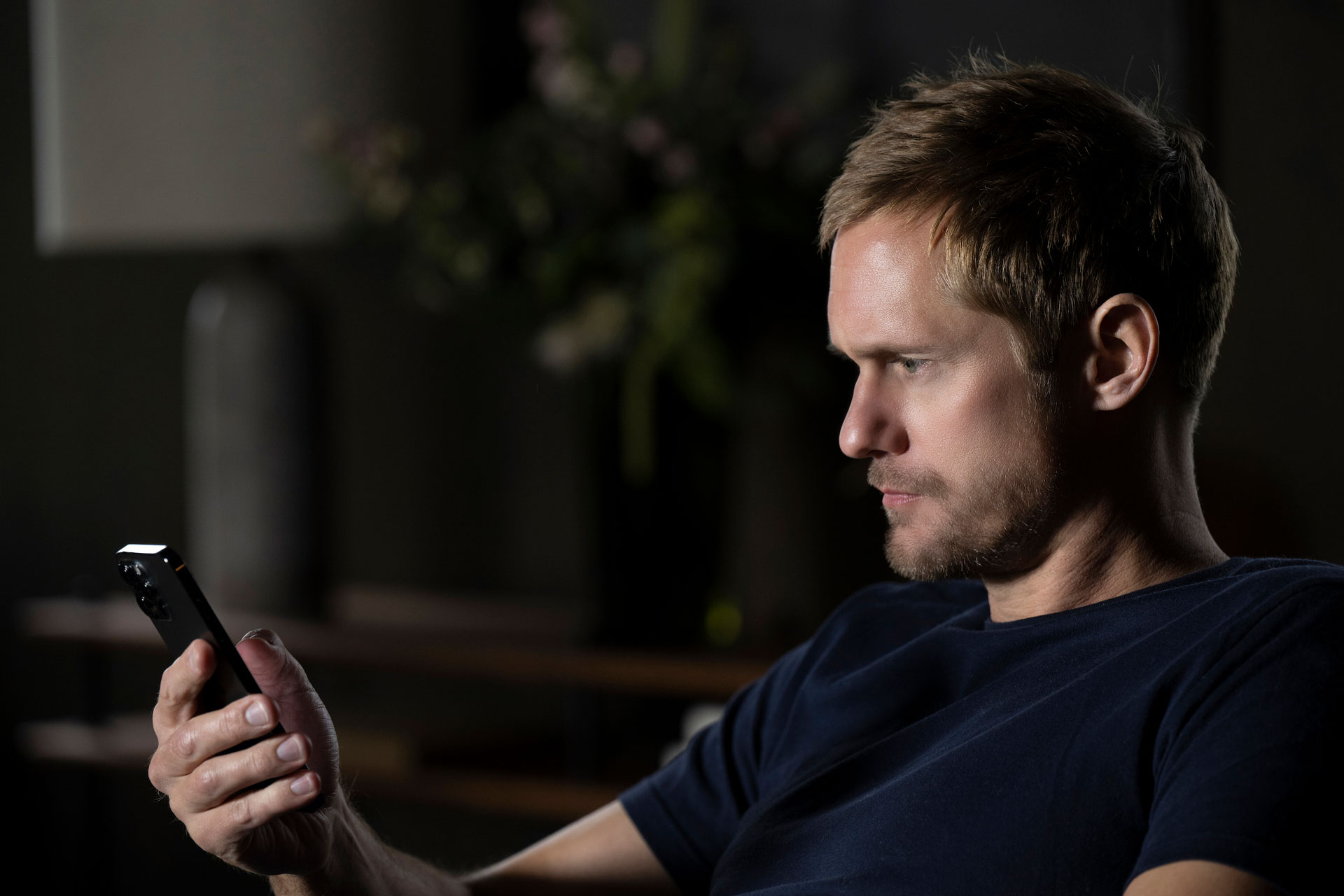
The internet can’t stop talking about “quiet luxury” and “stealth wealth,” trendy new descriptors for the type of expensive minimalism that has long been associated with a certain brand of old money. With thanks to TikTok, Succession, and Gwyneth Paltrow’s courtroom looks for setting and proliferating the trend, communicating wealth through under-the-radar opulent clothing and accessories has become the thing. But while some may associate the concept with fine tailoring, a rejection of logomania, or cashmere sweaters from the Row that will set you back over $1000, there’s one quietly trending stealth wealth signifier that, technically, millions of people could adopt right now: stripping the case off your smartphone.
It’s so mundane that it would be easy to miss, but the evidence is all around. From Meghann Fahy’s Daphne, a wealthy stay-at-home wife and mother on season 2 of The White Lotus, to the obscenely privileged Roy children on Succession and the traders on Billions, rich people on TV can’t be bothered with phone cases. And in real life, the uber wealthy have been spotted with phones sans protection, too; over the years, billionaires Elon Musk, Jeff Bezos, and Jay-Z have all been photographed with a caseless iPhone in hand.
The message here is obvious: no case, no problem, because I can afford to replace it. But the expense of a smartphone is nothing to sneeze at. The latest iPhone model, the iPhone 14, starts at $829 and goes up to $1,200; according to CNET, prices for the iPhone have risen 15% in the last 6 years, the steepest increase since Apple launched the device. Meanwhile, the desire for protective cases seems to be growing: Verified Market Research, a research and consulting firm, projects that the global market for phone cases will grow to $35.81 billion by 2028 (up from $21.61 billion in 2020).

For 31-year-old Rocio Martinez, a talent director in Boston, a case and a screen protector are non-negotiable, a conclusion she came to after losing multiple devices to damage. “You don’t value a phone until you have to buy a new one for $1,000,” she says. “Sometimes I would rather not use a case, but I feel like I would get anxiety.”
More from TIME
Yet some deem the risk of damage worth the aesthetic reward. Thomaï Serdari, the director of New York University’s Fashion & Luxury MBA program, says that not using a phone case can be a telling communicator of both class and values. At the most surface level, she believes that carrying a smartphone without a case speaks to an appreciation of design and aesthetics: “It’s so beautiful by itself, so why do you need to put it in a case?” Serdari likens a smartphone to a designer watch, suggesting that both can be signals of taste. “Often cases either are branded themselves or are from fashion brands and have very loud elements,” she says. “It goes against understated aesthetics.”

Melissa Cepeda, a 31-year-old accountant in Los Angeles, has cracked many a screen, but she still elects to go caseless. “It’s the overall sleekness of it,” she says. “Bags are getting smaller, so my phone is naturally out more—I just bought a purse that can barely fit my ID, my keys, and a credit card.” Cepeda is willing to risk a naked phone because, as she puts it, “a chunky case is just going to clash with my aesthetic.”
While many smartphone cases double as wallets—including expensive designer ones from brands like Prada—the ultra-wealthy aren’t exactly in the habit of carrying around wads of cash. A person with a private driver has no need for a convenient little slot to store a public transportation pass. By the same token, Serdari notes, someone who lives in a luxury building with a doorman likely doesn’t need to tote around a fistful of keys, and therefore isn’t as worried about scratching their phone in a pocket or purse.
Read More: Why Moms on Instagram Love Minimalism
“If you are at that level of wealth, you don’t need to have anything with you other than the phone itself and what it implies, like electronic payments,” Serdari says.
She also points out that many white-collar professionals, particularly those who dress in suits for work, may lean away from bulky cases because they’re more difficult to subtly stash away. “There’s the question of where you store it: in your back pocket or your jacket pocket?” she says. “How do you maintain the slim profile that the smartphone has without creating any added inconvenience in your life?”
And while some believe that forgoing a phone case communicates privileged negligence, Serdari cautions against equating having lots of disposable income with being careless.
“You cannot make an overarching argument that this is how the ultra-wealthy behave,” she says. “On the contrary, these are people who are very careful about their things.” Instead, she believes that it’s all about priorities. For someone who can afford any material item they want, intangibles like time or convenience may be far more valuable than the monetary price of a new phone—and the ability to use one sans case can make for a more effortless life. Cases are bulky, they collect dirt in hard-to-clean crevices, they render fashionable mini purses unusable. “It’s the whole idea of comfort,” Serdari says. “Minimal objects contribute to a comfortable life.”
More Must-Reads from TIME
- Donald Trump Is TIME's 2024 Person of the Year
- Why We Chose Trump as Person of the Year
- Is Intermittent Fasting Good or Bad for You?
- The 100 Must-Read Books of 2024
- The 20 Best Christmas TV Episodes
- Column: If Optimism Feels Ridiculous Now, Try Hope
- The Future of Climate Action Is Trade Policy
- Merle Bombardieri Is Helping People Make the Baby Decision
Write to Cady Lang at cady.lang@timemagazine.com